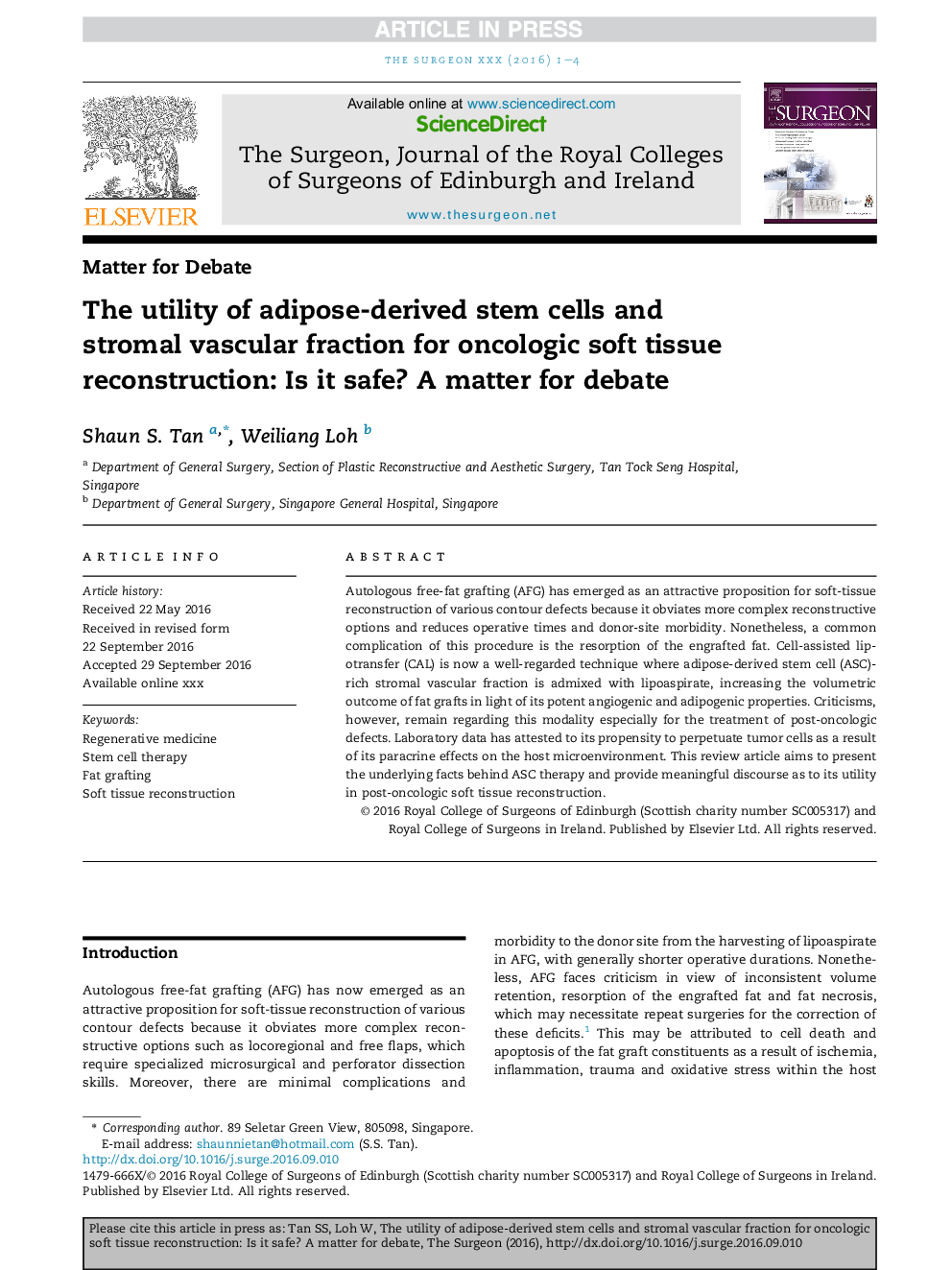| Article ID | Journal | Published Year | Pages | File Type |
|---|---|---|---|---|
| 5644065 | The Surgeon | 2017 | 4 Pages |
Abstract
Autologous free-fat grafting (AFG) has emerged as an attractive proposition for soft-tissue reconstruction of various contour defects because it obviates more complex reconstructive options and reduces operative times and donor-site morbidity. Nonetheless, a common complication of this procedure is the resorption of the engrafted fat. Cell-assisted lipotransfer (CAL) is now a well-regarded technique where adipose-derived stem cell (ASC)-rich stromal vascular fraction is admixed with lipoaspirate, increasing the volumetric outcome of fat grafts in light of its potent angiogenic and adipogenic properties. Criticisms, however, remain regarding this modality especially for the treatment of post-oncologic defects. Laboratory data has attested to its propensity to perpetuate tumor cells as a result of its paracrine effects on the host microenvironment. This review article aims to present the underlying facts behind ASC therapy and provide meaningful discourse as to its utility in post-oncologic soft tissue reconstruction.
Related Topics
Health Sciences
Medicine and Dentistry
Dentistry, Oral Surgery and Medicine
Authors
Shaun S. Tan, Weiliang Loh,
